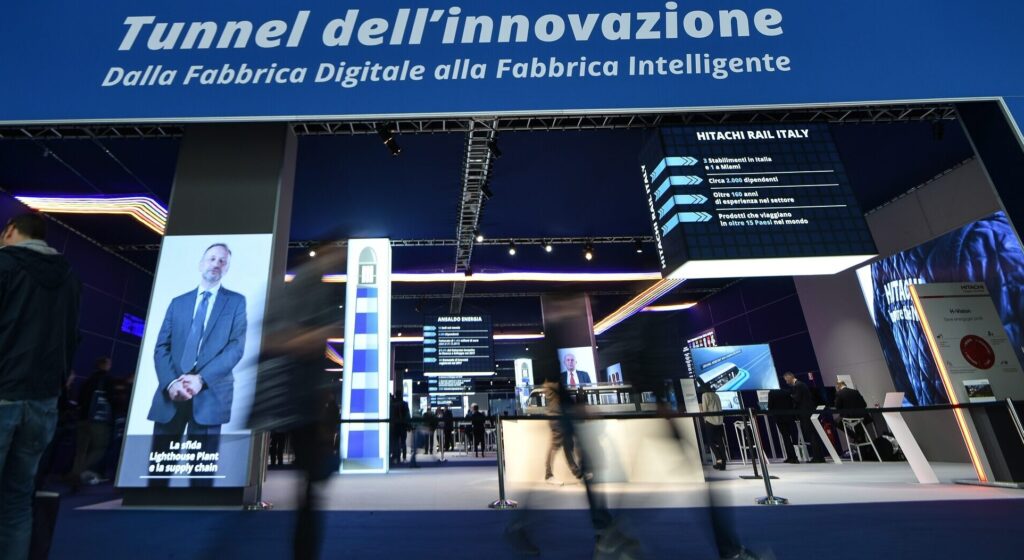Resilient, ready to change and to accept challenges, even the most unexpected ones, relying on their resources and capability of looking ahead, despite the particular time: this is the picture portrayed by MECSPE Observatory survey.
We are certainly facing an unprecedented period, which marks a decisive gap between those who had been able to adopt in advance the digital change and those who found themselves unprepared, so being more affected by the effects caused by the pandemic on industry.
The analysis reveals a transitory phase, where the confidence in one’s own corporate situation almost reaches the sufficiency but scepticism and uncertainty about the general scenario remain. Almost two thirds of the sample fixes one year maximum of time to restart at full rate.
Innovation remains the key factor to recover, together with the training of specialized young and a growing attention to sustainability.
Desire of living normality again: 35% of interviewees believe that exhibitions should necessarily involve the alive participation.
Covid-19 pandemic has unavoidably influenced the performance of Italian SME, exerting a negative impact on almost 9 companies out of 10. However, if 14% of entrepreneurs state they have already recovered normality completely and 65% are going to do that within one year maximum (23% within 6 months), the general confidence index surveyed by the investigation makes Italian enterprises’ sentiment, in a scale from 1 to 9, rank on an “average” level versus the current situation.
Digital and new technologies to react to the crisis: resilience weapons
Last months have witnessed a necessary digital acceleration, especially in lockdown phase, for those who were not compelled to stop manufacturing activities for a period, corresponding of 62% of interviewees.
A boost promptly suited by 6 companies out of 10, succeeding in reacting promptly to the crisis through the investments made some time ago in new technologies and the deployment of useful instruments for the social distancing:
· platforms for the remote management of meetings, adopted by 36%;
· design technologies to redesign the new spaces of the 4.0 factory in conformity with safety requisites (10%);
· virtual systems that allow the control from remote of operational activities (7%);
· platforms of collaborative design and manufacturing process simulation for the development of the whole product (5%);
· apps and software to localize and to trace the paths of people in the factory (4%).
 Moreover, the resilience of manufacturing companies is proven also by the choice, already made or under evaluation, of shifting the production towards other sectors (12%), as well as by timely provisions carried out in the course of the emergency phase, such as safety plans drawn up to avoid contagion risks (55%), the introduction of smart/flex working modalities (43%), with 34% providing for the reduction of operating costs, 29% who went on investing in innovation and new technologies and 19% who focused on the corporate training from remote.
Moreover, the resilience of manufacturing companies is proven also by the choice, already made or under evaluation, of shifting the production towards other sectors (12%), as well as by timely provisions carried out in the course of the emergency phase, such as safety plans drawn up to avoid contagion risks (55%), the introduction of smart/flex working modalities (43%), with 34% providing for the reduction of operating costs, 29% who went on investing in innovation and new technologies and 19% who focused on the corporate training from remote.
Consequences that have probably led to the choice, for almost half of them, of going on investing, by the yearend, up to 10% of their turnover in innovation, with 17% of interviewees who are going to achieve from 11% to 20%.
Mecspe Observatory: staking on sustainability and on specialized young
To overcome this moment and to start growing economically again, almost 8 entrepreneurs out of 10 believe it is important to focus on sustainability, too. Among the aspects already most cared, the consumption reduction ranks first, indicated by 61% of interviewees, followed by social responsibility projects (53%), by the attention to pollution and environmental impact, by the ethics in the relationships with suppliers and customers (52%). Importance is acknowledged also to the support to the territory economy (35%), and to the product eco-sustainability (30%).
 The new phase, in the name of the fast race of digital processes, has consequently disclosed new opportunities to engage and to train more young workers in factories. If on one hand 26% prefer not providing for employments of this kind at present, 20% are evaluating the engagement of young specialized in the field of 4.0 technologies, coming from Technical Institutes or Universities, or with a basic working experience. Furthermore, 13% are organizing in-house training courses for the young workers already engaged by the company while 9% are evaluating to employ young even without a previous scholastic or working education but providing for in-house specific training courses.
The new phase, in the name of the fast race of digital processes, has consequently disclosed new opportunities to engage and to train more young workers in factories. If on one hand 26% prefer not providing for employments of this kind at present, 20% are evaluating the engagement of young specialized in the field of 4.0 technologies, coming from Technical Institutes or Universities, or with a basic working experience. Furthermore, 13% are organizing in-house training courses for the young workers already engaged by the company while 9% are evaluating to employ young even without a previous scholastic or working education but providing for in-house specific training courses.
Exhibitions and events, astride on and off-line experiences
Digital talks, webinars and virtual events. Users seem to appreciate the numerous business initiatives conceived in digital version in recent months for companies and professionals owing to the imposed situation, mainly for safety matters (21%), but the off-line remains the preferential channel.

Although they judge the online a valid alternative, 27% of interviewees continue to attend live events, and 35% believe that soon the digital experience of exhibitions will necessarily be combined with the physical experience again, already since next Autumn, with traditional trade fairs.









